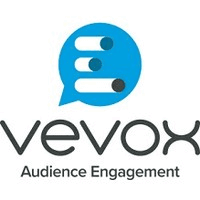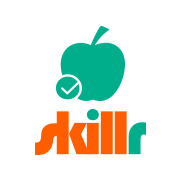Description

Study Island

Vevox
Comprehensive Overview: Study Island vs Vevox
Study Island and Vevox serve different educational and engagement purposes, which can be understood through their primary functions, market targets, comparison in market share and user base, as well as their key differentiating factors.
Study Island
a) Primary Functions and Target Markets:
Study Island is an online educational platform designed primarily for K-12 students and schools. Its main functions include:
- Standards-Based Instruction: It provides teachers with tools to deliver standards-based instruction, practice, and assessments.
- Practice and Mastery: Offers various practice exercises that help students master state-specific standards and improve academic performance across subjects like math, reading, science, and social studies.
- Data Analytics: Teachers and administrators can access detailed reports to analyze student performance and identify areas needing improvement.
Target Market:
- K-12 Schools
- Teachers and Administrators
- Students (primarily in the United States focused on state-specific educational standards)
b) Market Share and User Base:
Study Island is widely used in the United States within the educational sector focusing on K-12 education. It is part of Edmentum, a larger education technology company, which gives it a strong presence in numerous schools across various states.
c) Key Differentiating Factors:
- Focused on K-12 Education: Study Island specifically addresses K-12 educational standards and testing requirements in the U.S.
- Variety of Educational Content: Offers content across multiple subjects with a focus on standardized test preparation.
- Integration with Edmentum's Suite: Benefits from being part of a broader suite of educational tools provided by Edmentum, which complements its functionality with resources like courseware and assessments.
Vevox
a) Primary Functions and Target Markets:
Vevox is an interactive polling and Q&A platform designed for meetings, classes, lectures, and conferences. Its main functions include:
- Live Polling and Q&A: Facilitates real-time interaction during presentations or lectures through polls and Q&A sessions.
- Audience Engagement: Enhances audience participation, making sessions more dynamic and interactive.
- Data Collection: Provides analytics on audience responses, helping presenters gauge understanding and engagement.
Target Market:
- Higher Education Institutions
- Corporate Events
- Conference Organizers
- Presenters and Facilitators
b) Market Share and User Base:
Vevox has a significant presence in the higher education and corporate sectors. It is used globally in universities and companies looking to enhance engagement during presentations and classes. Its market share is defined by its ability to integrate seamlessly with other presentation and educational technologies.
c) Key Differentiating Factors:
- Focus on Audience Engagement: Unlike Study Island's focus on K-12 education, Vevox is geared towards enhancing audience interaction in both educational and corporate settings.
- Flexibility Across Environments: Can be used for various settings such as lectures, meetings, and conferences, offering versatility in use.
- Real-time Interaction and Feedback: Primarily focuses on real-time interaction, providing instant feedback and engagement analysis.
Comparison Overview:
- Target Markets: Study Island serves K-12 education with a focus on standardized learning, while Vevox targets students and professionals in a variety of environments needing interactive engagement solutions.
- Primary Functionality: Study Island offers academic practice and assessment, whereas Vevox focuses on engagement through polls and Q&A.
- Market Presence and Positioning: Study Island has a strong foothold within U.S. educational systems, while Vevox is used globally across different sectors, giving them both strong but differing market presences.
In summary, both products cater to different needs within the educational and professional arenas, with Study Island focusing on K-12 educational achievement and Vevox enhancing interactivity and engagement within broader contexts.
Contact Info

Year founded :
2000
Not Available
Not Available
Not Available
http://www.linkedin.com/company/study-island

Year founded :
2016
+44 142 874 8376
Not Available
United Kingdom
http://www.linkedin.com/company/vevox
Feature Similarity Breakdown: Study Island, Vevox
Study Island and Vevox serve different primary purposes, but both are educational tools designed to enhance learning and engagement. Here’s a breakdown of their feature similarities and differences:
a) Core Features in Common:
-
Interactive Content:
- Study Island: Provides interactive quizzes and activities aligned with educational standards to reinforce learning.
- Vevox: Offers interactive polling and Q&A sessions to engage students and assess understanding in real-time.
-
Data Analytics:
- Both platforms offer analytics to track performance and engagement. Study Island focuses on educational progress, while Vevox provides insights into participation and feedback.
-
User Engagement Tools:
- Study Island: Uses educational games and practice sessions to engage students.
- Vevox: Utilizes polls, quizzes, and feedback to keep participants active and involved.
-
Reporting Features:
- Both platforms generate reports to help educators/students review performance and engagement metrics.
b) User Interface Comparison:
-
Study Island:
- The interface is educational-focused, designed with a layout that showcases lessons, quizzes, and progress tracking.
- Typically features a dashboard that allows teachers and students to manage assignments and track performance.
- Emphasizes ease of access to content relevant to specific educational standards and curricula.
-
Vevox:
- The interface is more business/meeting-oriented, sleek, and modern to cater to live interaction needs.
- Focuses on live presentation and audience interaction tools, with easy navigation to polls, Q&A, and feedback modules.
- Designed for real-time updates and immediate feedback during live sessions.
c) Unique Features:
-
Study Island:
- Standards-Based Practice: Offers content tailored specifically to state and national educational standards, making it very curriculum-focused.
- Customizable Assignments: Teachers can create specific practice assignments aligned with their curriculum requirements.
- Built-in Lesson Plans: Provides structured lesson plans for teachers, complete with instructional resources.
-
Vevox:
- Real-Time Interaction: Allows presenters to conduct live polls and Q&A sessions during meetings or lectures, ideal for instant feedback.
- Integration with Presentation Software: Seamlessly integrates with tools like PowerPoint to enhance interactive presentations.
- Anonymity Options: Offers options for anonymous participation, encouraging more honest and open feedback.
In summary, while both tools enhance interactivity and engagement, Study Island is heavily focused on structured educational standards and student practice, whereas Vevox excels in facilitating live interaction and feedback in educational or professional settings.
Features

Engaging Practice Tools
Flexible Instructional Support
Comprehensive Reporting
Customizable Learning Paths

Collaborative Tools
Audience Engagement
Integration & Accessibility
Data & Insights
Best Fit Use Cases: Study Island, Vevox
Study Island
a) Best Fit Use Cases:
-
Educational Institutions:
- K-12 Schools: Study Island is primarily designed for K-12 educational settings, making it an ideal choice for public and private schools looking to enhance their instructional methods and improve student performance.
- District Level Education Programs: School districts can use Study Island to standardize learning tools across multiple schools, providing consistent educational experiences and performance tracking.
-
Test Preparation:
- State Standardized Tests: It is particularly useful for preparing students for state-specific assessments, as it aligns content with state standards and widely adopted educational benchmarks.
-
Supplemental Learning:
- After-School Programs: Institutions offering after-school or summer learning programs can leverage Study Island for additional practice and enrichment activities.
- Tutoring Centers: Centers focusing on individualized learning can utilize Study Island to tailor content to student needs and track progress effectively.
-
Remote Learning:
- Online Schools: It supports virtual learning by providing access to online educational resources that are adaptable to individual student needs.
Vevox
b) Preferred Use Cases:
-
Corporate Sector:
- Meetings and Conferences: Vevox is highly effective in engaging participants during corporate meetings, conferences, and large-scale events through live polling, Q&A sessions, and surveys.
- Training Sessions: It can be used to make corporate training sessions more interactive and gather instant feedback on training content.
-
Higher Education:
- University Lectures & Seminars: Instructors in higher education can use Vevox to facilitate interactive learning environments, engage students through live polls, and assess understanding in real-time.
-
Market Research:
- Focus Groups: Vevox is useful for researchers conducting focus groups where immediate feedback and participant interaction are needed.
-
Team Collaboration:
- Workshops and Brainstorming Sessions: Facilitators can use Vevox to encourage participation, gather diverse inputs, and make informed decisions during collaborative sessions.
d) Industry Verticals and Company Sizes:
-
Study Island:
- Industry Vertical: Primarily targets educational verticals, including primary and secondary education institutions.
- Company Size: While it mainly serves educational institutions, it can be applicable for small to medium-sized tutoring centers and after-school programs.
-
Vevox:
- Industry Vertical: Has a broader application across multiple industries including corporate, higher education, and market research.
- Company Size: Suitable for both small businesses and large enterprises, as it scales effectively to meet the needs of different sizes and types of organizations—from small team meetings to large international conferences.
Both products stand out by catering to specific needs within their respective domains, offering specialized features that enhance learning and interaction in educational and corporate settings.
Pricing

Pricing Not Available

Pricing Not Available
Metrics History
Metrics History
Comparing teamSize across companies
Conclusion & Final Verdict: Study Island vs Vevox
To offer a comprehensive conclusion and final verdict for Study Island and Vevox, we need to evaluate each product based on key factors such as features, value for money, usability, and target audience. Here’s a detailed breakdown:
a) Best Overall Value
Study Island is generally aimed at K-12 education, providing standards-based practice and assessment solutions. Its value shines in a structured educational setting where curriculum alignment and individualized learning paths are prioritized.
Vevox, on the other hand, is an audience engagement tool suitable for education and business environments. It provides real-time polling, Q&A, and feedback features, which can be highly beneficial in both educational settings and corporate training or meetings.
Conclusion: The best overall value depends heavily on the intended use. For K-12 educators focusing on curriculum adherence and direct student learning, Study Island offers a comprehensive solution. Conversely, for higher education and business settings where engagement and interaction are critical, Vevox provides superior value.
b) Pros and Cons
Study Island
Pros:
- Aligns well with state and Common Core standards.
- Offers a wide range of practice activities and assessments.
- Great for data-driven instruction and progress monitoring.
- Supports differentiated learning.
Cons:
- Limited to K-12 education.
- Less suitable for real-time engagement and interaction.
- May not provide extensive features for higher education or corporate environments.
Vevox
Pros:
- Versatile use in both education and business settings.
- Excellent real-time polling and interactive features.
- Enhances audience engagement and participation.
- Integrates well with other platforms (e.g., PowerPoint).
Cons:
- Does not offer curriculum-specific practice or assessment.
- May require additional tools for comprehensive educational solutions.
- Less focused on individual learning progress tracking.
c) Specific Recommendations
-
K-12 Educators: If you're primarily focused on enhancing student performance through standards-aligned activities and assessments, Study Island is likely the more appropriate choice. Its built-in analytics and educational resources can directly support teaching and improve student outcomes.
-
Higher Education/Corporate Users: For those interested in improving engagement, interaction, and feedback in their sessions or meetings, Vevox is the better option. Its ability to facilitate real-time interaction makes it invaluable for lectures, training sessions, or large group meetings.
-
Blended Environments: If your needs straddle K-12 instruction and interactive engagement environments, consider combining the use of both tools to maximize educational outcomes while maintaining high interaction levels.
Ultimately, aligning your choice with your core objectives and audience needs is crucial. Ensure you leverage trial periods or demos to explore how each platform fits into your specific educational or engagement setting before making a final decision.
Add to compare
Add similar companies




